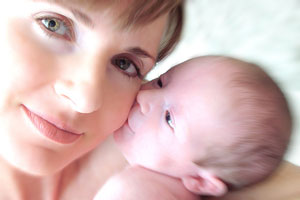Some questions mothers ask about children (Part one)

1 - Why do some children have a bad breath?
The most common causes are related to the oral cavity and difficult digestion.
Oral hygiene - is the most common cause. Food residues between teeth, (especially sugars), ferment, causing bad breath. If the mouth is washed, the smell changes.
Decayed teeth - their microbes become a cause for the smell change. With the first appearance of decay, it should be treated. It is not true that milk teeth do not need treatment. Respiratory tract infections in some cases are accompanied by a slight bad breath from the mouth, something transient, does not require special measures.
Difficult digestion - Occurs more often when there is an excess of proteins (meat, eggs, milk, butter, etc.), insufficient vegetables are consumed, and not enough water is drunk. Adjusting the diet also eliminates the bad smell. Adenoids, chronic tonsils with many pits, and sinus congestion - often accompany prolonged bad breath. The problem is solved only by treating these diseases.
Acetone - is one of the causes of the smell change (see Acetone). In rare cases, behind this sign, other causes such as Diabetes, serious liver, kidney diseases, metabolic problems, etc., may be hidden, but beware - only bad breath is not a typical sign if it is not accompanied by other signs of these diseases.
2 - The child has bad breath only when waking up in the morning. Why?
This happens because, at night, in some cases, saliva production significantly decreases, which favors some elements that change the smell; but everything normalizes with the resumption of normal salivation after drinking a glass of water or eating breakfast.
You shouldn't worry, it is a transient phenomenon. But what about parasites? Years ago, there were thoughts about the influence of pinworms, but recent studies have proven that there is no connection between them.
3 - Is the pacifier good or bad?
The pacifier helps the child to sleep, to calm down at the peak of crying, to not feel lonely when the mother is not around; a way to release tensions and feel more secure; a protective tool against fear and loneliness. Mothers know well that in the first months of life, when awake, children spend most of their time sucking; an act that brings them pleasure.
There are children who want to suck their finger or the whole hand, in these cases, it's better to offer them a pacifier (if they accept it). Many researchers have concluded that using a pacifier within the first 3 years of life does not cause irreversible damage to the dental arch; whereas sucking the finger, among other things, has more impact on the palate; that's why the pacifier is not harmful.
For more details, read the book: “The children's doctor answers” which you can find at Clinic Erton and in every bookstore.
URINARY INFECTIONS IN CHILDREN
When should it be suspected?
Do not expect the same signs as in adults; many of them are mainly related to age. The peculiarity is that in young ages, in the foreground are symptoms which divert attention from these diseases, which often leads to them remaining undiagnosed in time.
Urinary infections in newborns
In this age, typical signs are missing. Instead of high temperature, there might be a decrease in it. Paleness, drowsiness, improper breathing, vomiting or diarrhea, red spots on the diaper, not gaining weight, signs of fluid loss - are some of the indicators that should draw attention to a UTI (Urinary Tract Infection).
In any case of suspicion, initially, a urine analysis, urine culture, and Echo should be sought. A good portion of UTIs develop on the terrain of malformations of the urinary system. Based on this, alongside treating the infection, an in-depth search for predisposing causes is necessary.
Urinary infections in ages up to 2 years
In the foreground are disturbances of the digestive system (lack of appetite, nausea, vomiting, diarrhea), temperature (in the initial stage often and convulsions), episodes of temperature “of unclear nature”, irritability, leg kicking during urination, bad-smelling urine, indirect signs of abdominal pain, stunted weight gain, etc.
Urinary infections in older children
After the age of 2 years, the disease gradually starts to show the characteristics of adults, where we can find some somewhat specific signs like burning during urination, pain at the lower end of the abdomen, etc.
Hello, I have a question: My child is 5 months old and has problems with breastfeeding. The doctors told me that the problem comes from the nose. When they sleep, they snore a lot...can this be a big problem. Thank you very much
Sent by shpend, më 28 March 2013 në 13:46
Hello, I am worried about my son, he is 20 months old and still hasn't started talking, but I want to emphasize that he is very irritable, could this affect his delayed speech? Also, I am concerned because since he was born his cheeks are red and even today they remain so, sometimes it looks like he has a fever. What do you think about these issues I mentioned? Could you please provide me with some explanation? I am really worried about him. Thank you
Sent by vojsava vrapi, më 18 April 2013 në 03:28
I liked the article, but it didn't help me. I have a 10-year-old child with developmental delay and lack of appetite, fed through PEG. Physically, nothing seems wrong, there is no diagnosis. Please, if you have seen this condition, contact me. Thank you, goodbye
Sent by Zela, më 05 November 2013 në 17:24
Hello, I need your advice. I have a 3-year-old girl who has problems with her vagina; she has a lot of burning, itching, and a very bad smell. I don't know why. I have been to the doctor, but they prescribed antibiotics and it was not successful. I don't know what to do. Please advise me
Sent by edona , më 03 November 2014 në 17:09